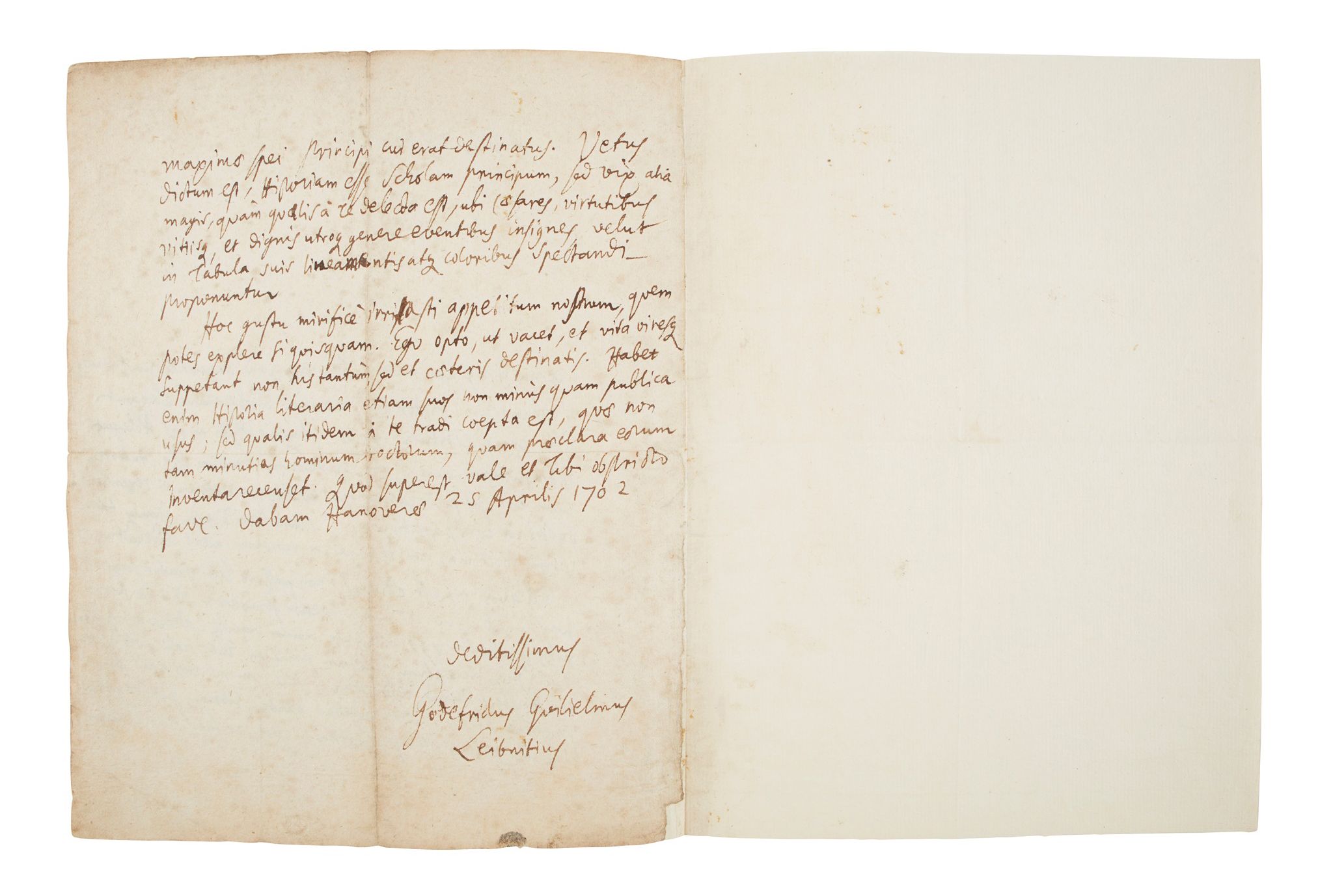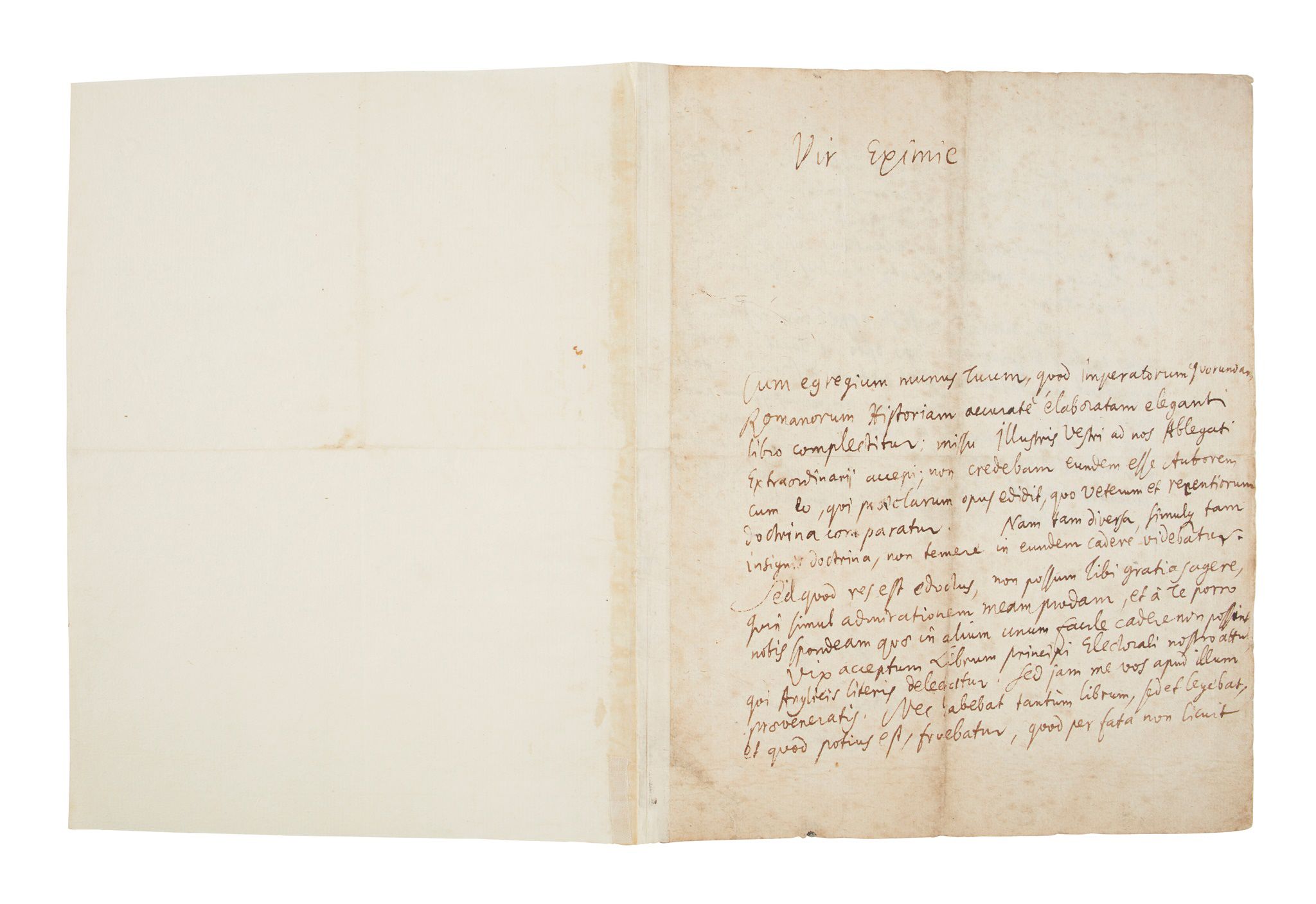The Last Universal Genius
A rare autograph letter from Leibniz was offered for sale in our September 2023 auction of Rare Books, Manuscripts, Maps & Photographs - a fascinating survival from this age of polymaths.

19 September 2023
Dominic Somerville-Brown
A rare autograph letter from Leibniz was offered for sale in our September 2023 auction of Rare Books, Manuscripts, Maps & Photographs - a fascinating survival from this age of polymaths.
Born in Leipzig in 1646 amid the ruins of the Thirty Years’ War, the German polymath Gottfried Wilhelm Leibniz was one of the great philosophers of European Enlightenment and made important contributions to the study of mathematics, physics, geology, law and history. He developed differential and calculus simultaneously with Newton, mounted a comprehensive critique of Cartesianism, and helped lay the theoretical groundwork for modern computer science. As privy councillor to the house of Hanover he worked on a bewildering array of scientific inventions and towards the end of his life helped establish the Hanoverian claim to the British crown.

A rare autograph letter from Leibniz was offered for sale in our September 2023 auction of Rare Books, Manuscripts & Maps. It is a fascinating survival from this age of polymaths, in which great minds applied themselves to the full variety of questions confronting mankind, both practical and theoretical, often while holding high office.
The recipient, the English linguist and theologian William Wotton, had been a child prodigy even by the high standards of his day, graduating BA from the University of Cambridge at the age of 14, his precocious achievements inspiring John Evelyn to describe him as a ‘miracle’. Through his writings he developed the concept of a proto-Indo-European language, participated in early debates on the origins of life, and attacked the new philosophy of deism propounded by John Toland and Matthew Tindal.

Wotton’s seriousness in academic affairs contrasted with a raffish personal life, in which various aliases and frequent changes of address helped stave off the consequences of chronic debt, sexual impropriety and drunkenness. These vicissitudes notwithstanding, he maintained a correspondence with Leibniz over many years, impressing him especially with his 1694 work Reflections upon Ancient and Modern Learning, which was one of the first accounts of the history of ideas, satirised by Jonathan Swift in The Tale of a Tub.